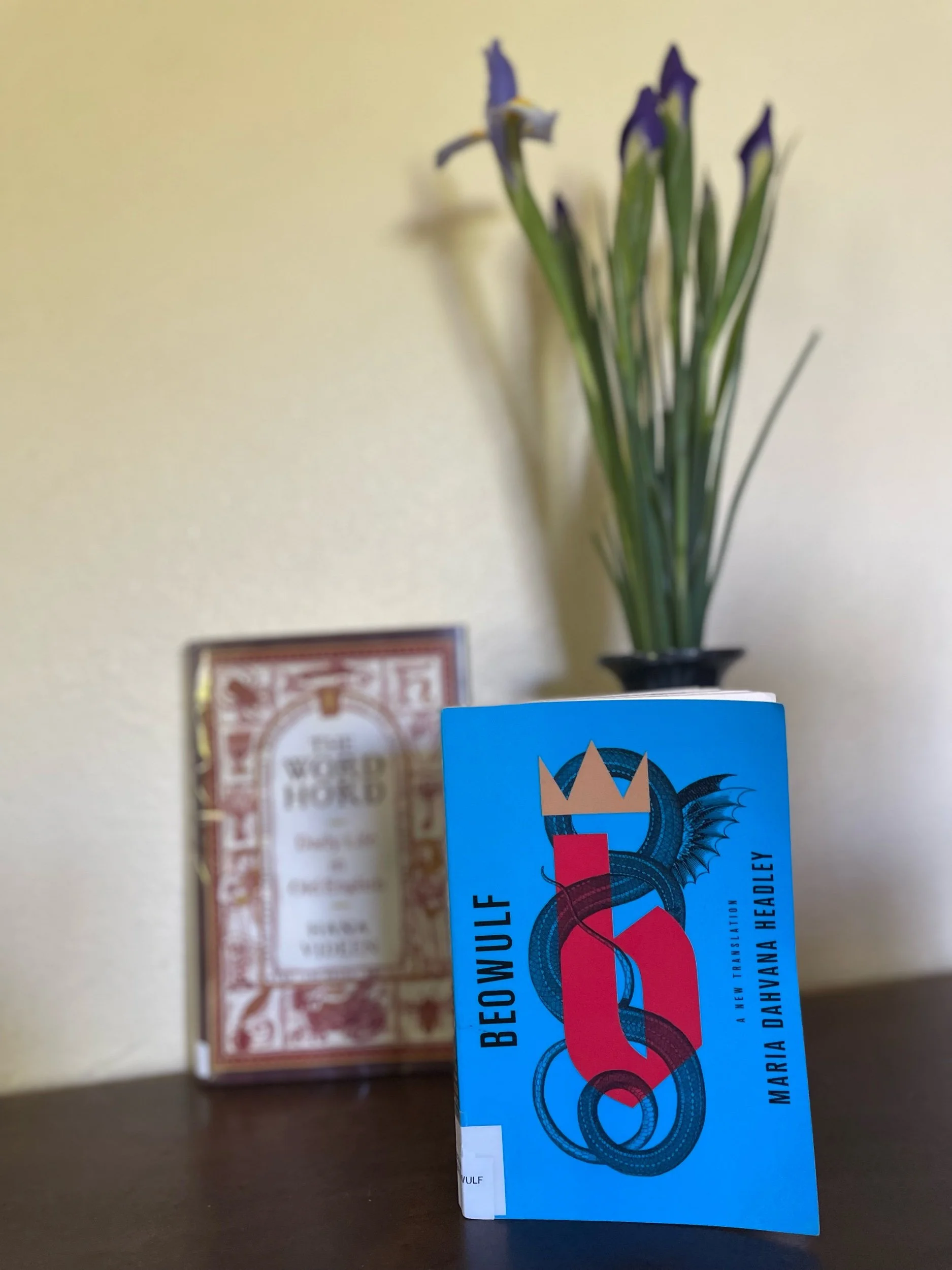The Wordhord
Hana Videen’s The Wordhord: Daily Life in Old English (2022) is a book exuding etymology and interesting factoids about what life was like during the days when Brits spoke Old English. This is a book about words, their usage, and definitions. The Wordhord is approachable and readable for a work of nonfiction that tackles a subject like Old English; Videen is clever and humorous as she unravels the onion of Old English for contemporary readers. While The Wordhord is certainly well-researched and academic, it does not lull its reader off to sleep as many books about medieval language and history might do. On the contrary, I found The Wordhord a compelling and entertaining read, one abounding with Old English words and tidbits I hope to remember long after reading.
Videen divides her book into chapters around theme. After an introduction to the topic of Old English generally, The Wordhord explores basic components of life: things like “Eating and Drinking,” “Passing of Time,” “Learning and Working,” and “Making Friends (and Enemies)”. These chapters abound with interesting connections between Old English words and their modern equivalents, as well as plenty of false cognates. As the book goes on, chapters become more esoteric: “The World Outside,” “Travel,” “Beyond Human,” and “The Search for Meaning”. Thus, as the reader approaches the conclusion of The Wordhord, she develops a hazy vision for cultural perspectives among the everyday native speakers of what we now deem Old English.
Videen demonstrates how we can understand daily life through word usage, despite the relatively few that remain. Since most medieval writing occurred in Latin, there are, I learned, only 200 extant manuscripts that contain any Old English. The earliest of these volumes dates from around 700 CE, while most of surviving Old English writing dates from several hundred years later following the rein of King Alfred (roughly 900-1100 CE). In total, scholars have around 3.5 million Old English words (Videen cites linguist David Crystal who likens that to roughly 30 novels). Imagine if only 30 novels were to demonstrates the language, culture, and daily life of our era. Think how many words would repeat, and how much of daily life would be lost to history. This is the milieu in which medievalists work; these remaining words provide the puzzle pieces through which they reconstruct meaning and, by extent, provide a window into English life over 1000 years ago.
Clearly, this subject fascinates me. Words, history, and the nexus point where the two collide has always sparked my interest. Books likeThe Wordhord provide the ideal balm to such curiosity. Videen starts by providing context to the concept of “Old English,” by establishing what proceeded it and followed. If, for example, you’ve ever wondered how a rune-based language transformed into the Latin alphabet, or what words have transcended the centuries from medieval England to current use, this is the perfect book for you. It will entertain and inform on every page. It is a book so full of information that I found myself reading and rereading some passages and chapters I found particularly interesting; perhaps the ultimate testament to Videen’s very readable prose.
Bibliography
Videen, Hana. The Wordhord: Daily Life in Old English. Princeton University Press: 2021, 2022.
A Few Great Passages:
“Understanding a language is not just about knowing words and grammar: each language tells you something about the people who speak it, their cultures, dreams and daily life, how they see the world and their place within it” (14).
“This book is a wordhord of sorts, a hoard of words collected, treasured and shared. It was inspired by the hoard-wynn (hoard-joy), the joy that comes from hoarding. As I gathered words like gems, I realised that they weren’t just funny, strange and beautiful, but that together they told a story about people’s lives more than millennium ago” (17).
“Although the most common word for a human being in Old English is mann [. . .] I prefer a word for ‘human’ that is only used in poetry: reord-berend (speech-bearer). Reord means ‘speech’, ‘voice’ or ‘language’” (207).





